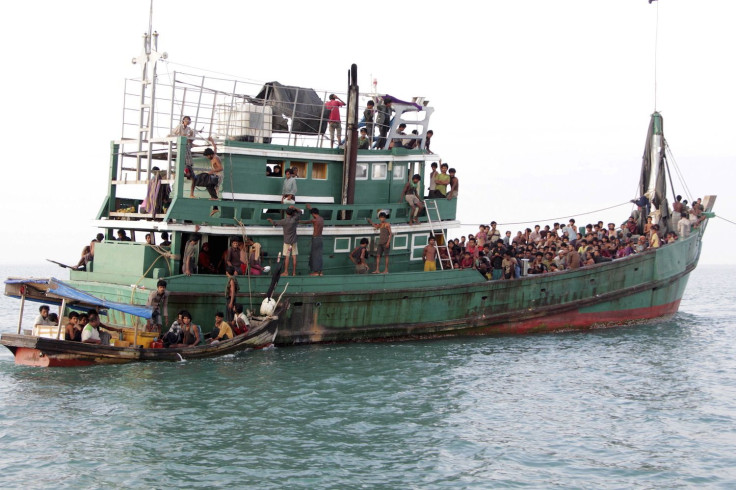Politician Claims Rohingyas Are Not Originally From Myanmar, Says Country’s History Is Too Complex

There is nothing to substantiate that the refugees wandering around in South-East Asian waters are Rohingyas from Myanmar, claimed Speaker of Myanmar parliament's upper house, Khin Aung Myint.
Speaking at the new Myanmar Research Centre at the Australian National University (ANU) in Canberra, Khin Aung Myint said, "I want to urge everyone, to look at everyone among these boat people, they cannot speak the Myanmar language, and they don't look like Myanmar people."
Reports suggest boats carrying over 10,000 people are still adrift in Andaman Sea. Hundreds of people from the ethnic minority, reportedly Rohingya Muslim migrants and economic refugees from Bangladesh have made it ashore in several South-East Asian countries, despite being pushed back to the sea after offering initial aid, including food packets and drinking water.
Australia’s Clears Its Stand
Last month, Prime Minister Tony Abbott confirmed that Australia would not let refugees caught in a long standoff at sea enter the country. The Prime Minister said, anyone could come to Australia to start a new life through the front door, but not through the back door.
Speaking through a translator Mr. Myint said, the investigations reportedly prove those refugees are not from Myanmar. "We're also aware that Australia is not accepting them, likewise Myanmar cannot accept them," he opined.
Tracing Back Rohingyas Origin
Mr. Myint argued that world leaders do not have a clear understanding of Myanmar's history; hence, it’s difficult for them to judge the situation well. Meanwhile, he added, the human smugglers mixed one set of existing refugees with economic refugees from Bangladesh, which created a whole new level of complication.
That’s why, in Mr. Myint opinion, "the Rohingyas have two options, one to live in their camps and die there soon, or flee from the camp and face some unpredictable risks in the future."
Contact the writer on barsha23@gmail.com






